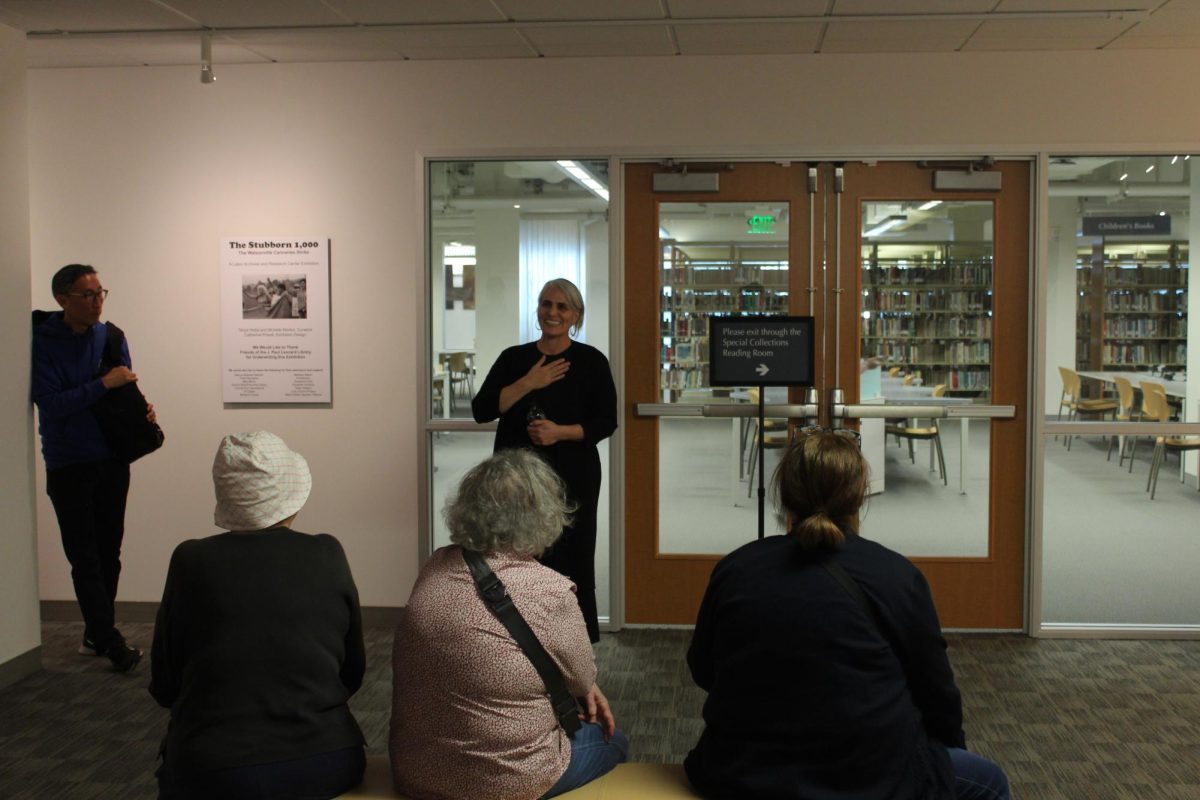Xpress does not typically utilize anonymous sources or writers. But as this story directly and explicitly recounts a personal story of familial immigration the writer elected for anonymity so as to protect their family’s current visa status from potential scrutiny.
My mother’s first steps into the U.S. were through a jail cell. Born in a family of 10, the only male being her father, my mother was raised in a ranch near Jalisco, Mexico. Rough times pushed my mother, along with six of her siblings, into the U.S. in hopes of a better life to help support the family she had to leave behind. Along the way into the U.S., with the help of someone commonly known as a “coyote,” a smuggler, my mother was captured and placed into a jail cell. They knew she was a Mexican citizen by birthright, but for unknown reasons, she was given all her belongings, released and told to go back on her own.
“I don’t know why they just let me go,” my mother said. “God was protecting me, and I, of course, didn’t go back.”
This birthright to citizenship is known as jus soli, the right where one achieves citizenship simply by being born in the territory of the country. It is common in countries within the Western Hemisphere — more specifically, a report done by the Library of Congress revealed that countries with jus soli laws in place are generally located in the Americas and the Caribbean, including Mexico. My mother was born in Mexican territory, so she achieved Mexican citizenship through jus soli.
Jus soli’s main aim is to prevent stateless people, people who don’t have a nationality of any country. It tackles the issue from jus sanguinis, citizenship through bloodline. Jus sanguinis is the standard that a child’s citizenship is determined by its parent’s citizenship, but if a child is born with no record or knowledge of their parents, then this would result in being stateless. If the child was born in a country with jus soli laws in place, it provides protection and security to these children with a guarantee of rights. It is a clear and simple standard of citizenship which protects against discrimination based on ethnicity, culture and so on.
However, jus soli laws provide incentive for illegal immigration and birth tourism. Countries with birthright citizenship laws often have issues with birth tourism, the act where people plan to come to a country to give birth for their children’s benefits and then return home. In many nations, a citizen can sponsor family members’ legal immigration. This means that parents who enter illegally and have a child born who becomes a citizen can have that child later sponsor them for a legal immigration process.
Just as with many other immigrants, the U.S.’ jus soli laws incentivized my mother, as she hoped for fruitful opportunities for her future children. Years later, my mother met my father, a womanizing stud from Mexico, and they happily married and had children in the U.S.
“I knew the children I would one day have would be better off as U.S. citizens,” my mother said. “Lucky for me, all I had to do was give birth here.”
Many people wonder why immigrants like my mother don’t come into the U.S. through legal means or simply apply for citizenship while living in the U.S. The first step to do this is to achieve an immigrant visa for permanent residency. Some of the most popular ways to do this are employment- and family-based visas.
Employment-based immigration requires an eligible U.S. employer committed to becoming your sponsor. They can only sponsor you if the employer cannot find qualified U.S. workers to take the job first. According to the American Immigration Council, “most of the qualifying professions for permanent immigration require high levels of education and professional experience, such as scientists, professors, and multinational executives.”
According to research published by the Pew Research Center in April, about 17% of Mexican-incoming immigrants have a bachelor’s degree or higher, and 25.2% have a high school degree, as of 2018. This means a majority of Mexican immigrants, like my mother, are unable to attain these visas for permanent residency. Seasonal visas for agricultural workers are available, but they are very limited in numbers and are highly competitive to achieve.
A family-based immigration visa is the most popular, with the National Immigration Forum citing 65% of legal immigration being through family visas. It requires an immigrant to receive sponsorship from a qualified relative who is either a U.S. citizen or a green card holder. Limitations of sponsorship depend on the sponsor’s citizenship status. In all cases, the petitioning family member in the U.S. must demonstrate an income level above the poverty line and must commit to support the family member they are seeking to bring to the U.S. The person wishing to immigrate must meet eligibility requirements as well. Failure in meeting any of these requirements results in denial.
Those fortunate to obtain an immigrant visa must meet its residency requirements before becoming eligible to apply for a green cardThis means you must stay in the U.S. for several years. Once completed, you may apply for a green card. An application will take anywhere from six to 24 months, or longer, according to a report by Citizenshipworks, to process if you’re fortunate, but achieving a green card can sometimes take up to 10 years for a family-based visa. This is because there are caps on the number of green cards allowed per year depending on the type of green card you are applying for.
If you are lucky enough to achieve a green card and want to apply for naturalization to achieve citizenship, you must submit an application with non-refundable fees of at least $320 for application processing, for low-income naturalization applicants, and $85 for biometric services if needed. These fees have largely increased over time. In 2019, the average cost was $1,170, according to the USCIS and U.S. Department of Labor. Afterward, you must attend an interview. After all is done, you will receive a decision from USCIS. If denied, your fees will not be refunded. For those who entered the U.S. by illegal means, most visas are highly regulated with strict qualifications. This means that no matter how long they’ve been in the U.S., a majority of unauthorized immigrants have no legal means to achieve legal status even if said immigrant pays taxes.
My mother is in the process of U.S. naturalization by obtaining a U-Visa. According to the USCIS, a U-Visa allows victims of a crime who meet certain requirements to stay in the U.S. for four years. After three years of having a U-Visa, they may apply for a green card to stay in the U.S. permanently. On average, the USCIS takes four and a half years to process U-Visa applications. If denied, my mother will be subject to deportation regardless of the fact that she is the mother of three children who depend on her and has lived within the U.S. for almost 30 years with no criminal record.















Pamela Estrada • Nov 12, 2020 at 8:51 pm
Great article. Would like to see more like this.